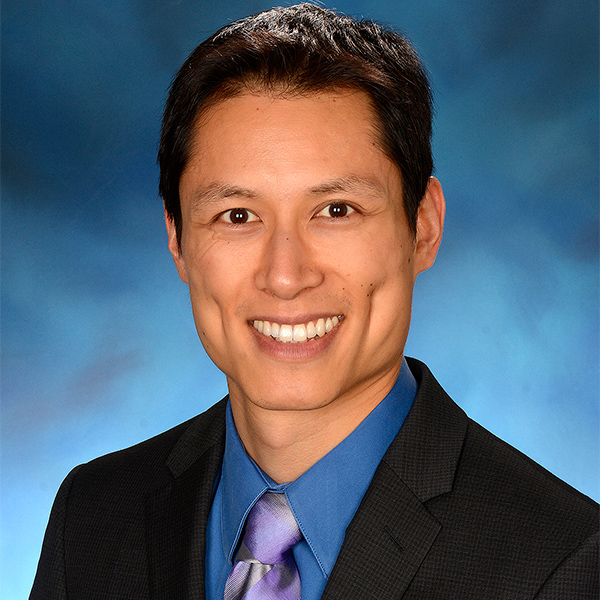Financial Moves to Consider During a COVID-19 Economic Upheaval

As I write this article, I am working from home after a week on the inpatient cardiology service. Unfortunately, I am being asked to check my temperature each day because of potential exposure to someone in the hospital who later tested positive for COVID-19, despite the lack of any symptoms.
It makes me grateful that my wife and I made the decision to have me self-isolate weeks ago from her and the kids, as painful as that has been.
I know that many of you are also making personal sacrifices for your patients and community, and at times putting yourself at personal risk – for this, I thank you and am proud to be among you.
While personal finances may be the last thing on our minds in the midst of the COVID-19 pandemic, early career cardiologists cannot ignore the financial upheaval caused by the resulting economic downturn.
Whether we like it or not, the financial choices we make during this time period will have rippling effects years from now. As we care for our patients, colleagues, families and ourselves, we must also care for our future selves.
While all of us have different financial situations, the following is a list of financial mistakes to avoid as well as strategies to consider.
Financial Mistakes to Avoid

Getting out of the market completely. Many people, spooked by the bear market and ensuing volatility, are reacting by selling their stocks and fleeing to safer assets like bonds or CDs.
The problem with this strategy is that it locks in your losses – you have irreversibly sold your stocks at a lower price than you originally paid, and you will miss out on the gains from an eventual recovery or be forced to buy back in at a higher price than you sold.
We have already seen people make this mistake in our lifetimes – many people got out of the market in 2008, only to miss out on the longest bull market in history. One thousand dollars invested in an S&P 500 index fund in November 2008 would be worth about $3,345 in May 2020, even after adjusting for inflation.
For early career cardiologists who have decades to ride out the market swings, selling now is almost certainly a mistake.
To quote a famous physician and finance author, an early-career worker "actively saving for retirement should get down on his knees and pray for a decades-long, brutal bear market so he can accumulate stocks more cheaply."2

Investing more with money intended for another purpose. Others are doing just the opposite – plowing money into investments when stock prices are at a discount.
While certainly better than panicking and selling at market lows, there is a danger in this strategy if you use money was that was already earmarked for something else, such as an emergency fund or debt repayment.
While these investments may be successful in the long term, you trade off short-term stability at a time when cardiology practices are taking a financial hit from decreased elective procedures, and employed cardiologists are facing pay cuts from struggling health systems.
Keeping some money out of the market in an easily accessible rainy day fund (such as in an online savings account) can help you weather any financial shocks without delaying debt repayment or going into more debt.
Financial Strategies to Consider

Make a pre-Sept. 30 plan for your CARES ACT eligible loans. If you have federally held (direct) Federal loans, the CARES Act has automatically provided you with the following benefits:
- A 0% interest rate and no minimum payments between March 13 and Sept. 30, 2020
- Six months of qualifying payments toward income-driven repayment or public service loan forgiveness (PSLF), even if you pay nothing.
Not sure if your loans qualify? Go to studentaid.gov and look up your loan information – if the lender is the U.S. Department of Education, they qualify.
There are a few strategies to consider between now and Sept. 30 when the CARES Act relief expires:
- If you are definitely not pursuing PSLF/doing financially well – It may be worth making loan payments anyway, as all the payments made before Sept. 30 will go toward the loan balance thanks to the 0% interest rate. This can save you a significant amount of interest charges when they resume after Sept. 30.
- If you are considering PSLF/could use financial relief – On the other hand, if you pursue PSLF, making loan payments before Sept. 30 would simply decrease the amount that is eventually forgiven without giving you additional benefits. There is no downside to simply pausing payments through Sept. 30.
- If you are somewhere in between – One strategy that preserves flexibility is to continue making loan payments to yourself in a separate savings account. That account can then be used to make a big lump sum payment or resume regular monthly payments on Sept. 30.
Roth Conversions

If you have a traditional or pre-tax individual retirement arrangement (IRA) that has lost value or if you have been unlucky enough to suffer a significant loss in income, a silver lining may be the opportunity to convert some or all of the money to a Roth IRA.
With traditional IRAs, investments are tax-deferred – contributions are tax-deductible, they grow tax-free and are taxed at withdrawal.
In contrast, Roth IRAs are post-tax – contributions are not tax-deductible, but they grow tax-free and are then tax-free at withdrawal. When you convert traditional IRA money to a Roth IRA, you pay ordinary income taxes on the converted amount, and the converted investments become tax-free from then on in the Roth IRA.
A good time to consider Roth conversions is when your traditional IRA has lost value and/or if your income has dropped to a lower tax bracket. By doing so, you pre-pay taxes at a lower rate, and lock in the tax benefits of the Roth IRA for the converted investments forever.
As we fight on for a safer and healthier future for our patients and our communities, we owe it to our future selves to protect our financial futures, as well.
Taking the time to make smart, financial decisions during this economic downturn can help early career cardiologists maintain the financial wellness we deserve for years to come.
Disclaimer: I am passionate about promoting financial wellness, but I am a practicing cardiologist, not a financial professional. Please do your own research and/or consult with a financial professional before making changes in your financial plan.


